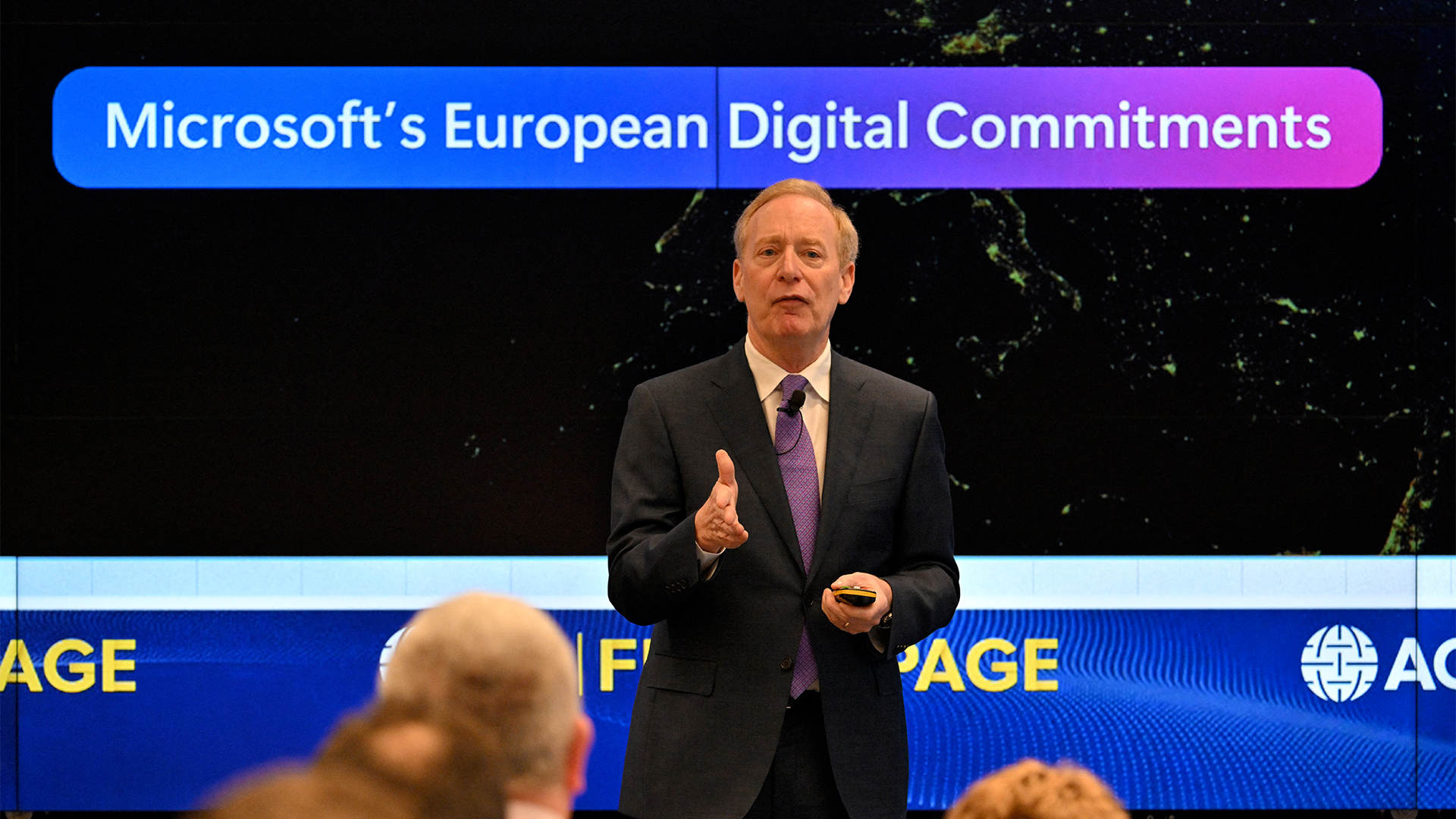Microsoft has said it will protect European data from American overreach in the courts if necessary — and will increase its investment in data centres in the EU.
The move is seen as a response to the Trump administration’s irritation over EU rules that have supposedly impacted American big tech firms, and suggested retaliation looms.
Trump signed a memorandum earlier this year pledging to defend American companies from “overseas extortion”, specially naming the EU Digital Markets Act (DMA) and threatening tariffs.
In a blog post, Microsoft president Brad Smith said the company would resort to litigation to protect EU customers from US demands to shut down services and pledged to increase investment in the region, continue efforts to protect data from legal demands and hackers alike, and boost the local economy via AI.
“We are at a moment in time when business needs to be a bridge across the Atlantic,” he said in a separate speech in Brussels.
In his blog post outlining Microsoft’s “European digital commitments,” Smith added the company would respect European values and comply with its laws.
“In a time of geopolitical volatility, we are committed to providing digital stability,” he said, without directly referencing the US administration.
“We in fact believe that even amidst current trade and tariff disputes, there is a strong consensus in Washington supporting the sustained flow of digital services from the United States to Europe.”
But Microsoft isn’t relying on that belief, and will build in further protections to cloud contracts.
Microsoft pledges no EU shutdown
Beyond the recently finished EU Data Boundary Project, Microsoft said European data center operations would be overseen by a European board of directors made up entirely of European nationals.
This also includes a new European Digital Resilience Commitment in all contracts. One aspect of that would be to fight any demands to stop working in Europe.
“In the unlikely event we are ever ordered by any government anywhere in the world to suspend or cease cloud operations in Europe, we are committing that Microsoft will promptly and vigorously contest such a measure using all legal avenues available, including by pursuing litigation in court,” Smith said.
Smith pointed to four lawsuits filed during the Obama administration to protect user privacy, as well as a Supreme Court case from Trump’s first term in which Microsoft sought, successfully, to uphold the rights of employees who are immigrants.
Similarly, Smith said the company had consistently fought legal demands that conflict with European law with regards to accessing user data.
“When necessary, we’re prepared to go to court,” Smith said.
That said, Smith added that Microsoft will set up partnerships with European companies to keep services up and running in case it was required by a court to suspend services.
“We will store back-up copies of our code in a secure repository in Switzerland, and we will provide our European partners with the legal rights needed to access and use this code if needed for this purpose,” he noted.
Expanding European data center investments
Smith also announced that Microsoft plans to increase European data center capacity by 40% over the next two years as part of efforts to expand its operations in 16 European countries.
“When combined with our recent construction, the plans we’re announcing today will more than double our European datacenter capacity between 2023 and 2027,” he wrote. “It will result in cloud operations in more than 200 data centers across the continent.”
Those data centers will be split across public cloud and sovereign cloud. Smith pointed to a partnership in France with Capgemini and Orange, under a joint venture named Bleu, for a “cloud de confiance”, or trusted cloud platform.
A similar project is in the works between Microsoft, SAP, and Arvato Systems to create a sovereign cloud for the German public sector.
Additionally, Smith noted that the firm is working with European cloud providers to offer its apps and services on local cloud infrastructure, and developing new licensing solutions for European providers — though the company has to do so following a settlement with Cloud Infrastructure Service Providers in Europe (CISPE).
These efforts naturally fall under local laws, such as European competition rules and the Digital Markets Act, he added.
“Microsoft is investing tens of billions of dollars annually in expanding its data centers across Europe,” he said.
“These investments aren’t on wheels. They are permanent structures and subject to local laws, regulations, and governments. Like every citizen and company, we don’t always agree with every policy of every government. But even when we’ve lost cases in European courts, Microsoft has long respected and complied with European laws.”
MORE FROM ITPRO
Source link
